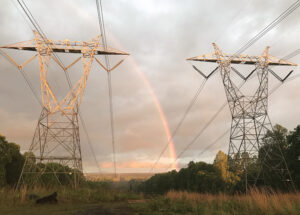
The National Rural Electric Cooperative Association (NRECA) recently welcomed the decision of the Federal Energy Regulatory Commission (FERC) to take more time to evaluate how organized electricity markets compensate various generation sources for the resiliency measures they undertake.
The five-member commission voted unanimously Jan. 8 to reject a pricing rule proposed by Energy Secretary Rick Perry and to instead implement a deliberative process that will allow electric cooperatives and industry partners to offer solutions to improving grid resiliency.
“We support FERC’s commitment to continuing this conversation on improving the resilience of the electric grid,” said NRECA CEO Jim Matheson. “This will be an important dialogue, and we appreciate Energy Secretary Perry for jumpstarting the discussion. Electric co-ops put a premium on maintaining a diverse, affordable and reliable power supply for their members.”
The proposal by Perry last September would have rewarded only merchant coal and nuclear power plants for grid resiliency in certain electricity markets.
NRECA had urged the commission to be more deliberative when considering Perry’s proposal and to sustain “flexibility to use all energy resources, including abundant regional resources and energy-efficiency technologies.
“Cooperatives support modernizing our nation’s energy policy in ways that keep costs affordable, promote system reliability and avoid imposing undue burdens,” NRECA told the commission.
The information-gathering process approved by FERC will assess threats to grid resilience and generate ideas to mitigate those threats.
Regional transmission organizations and independent system operators will have 60 days to file their responses to a list of questions posed by FERC about the resilience of their systems. NRECA and other members of the public can file their reply comments 30 days later.
FERC said it recognizes that it “must remain vigilant with respect to resilience challenges, because affordable and reliable electricity is vital to the country’s economic and national security.”
Source: Cathy Cash, NRECA







